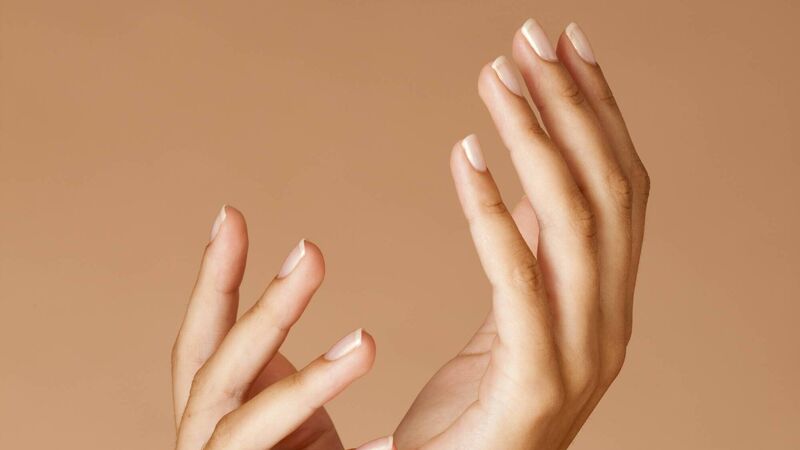Natural Health: What can I do to strengthen my brittle nails?

Brittle nails can indicate nutrient deficiencies, hormonal imbalance, or simply a reaction to detergents or chemicals you use at home or work.
I keep my fingernails cut short, but they are still brittle. A friend suggested getting gel nail polish to strengthen them but I’m not convinced. What natural treatment would you recommend?
Brittle nails can indicate nutrient deficiencies, hormonal imbalance, or simply a reaction to detergents or chemicals you use at home or work.
B vitamins are crucial for nail health, particularly the water-soluble B vitamin, biotin. A study found a 25% increase in nail thickness and a significant reduction in splitting and flaking after taking a 2.5mg daily dosage of biotin for nearly six months. Take two to three tablets daily for six months for best results.
Along with biotin, collagen is another popular supplement that falls into the functional food category for nails. Marine collagen is best for hair, skin, and nails, whereas bovine collagen is typically recommended for joint, bone, and muscle repair.
You can also use jojoba oil topically to nourish the nailbed and the nail itself. Massage the oil into the nail and surrounding area twice daily. You can also use other nourishing plant oils such as almond, olive, or hempseed.
Getting healthy fats into your diet is just as important as nourishing your nails from the outside. Ensure your diet is rich in essential fatty acids (EFAs) by eating plenty of nuts, seeds, and oily fish or taking a good EFA supplement.
Brittle nails can be a symptom of autoimmune conditions, thyroid disorders, rheumatoid arthritis, psoriasis, anaemia, nutrient deficiencies, and adrenal fatigue. If you are concerned about an underlying health issue, see your health practitioner.
My teenage daughter gets terrible pain at the start of her periods. She’s noticed that the pain lessens when she cuts back on sugar. Is there anything else she can do?
It is good to hear your daughter has identified a trigger for her period pain. An increase in blood sugar levels contributes to an inflammatory response in the nervous system, so this is likely part of the reason why sugar is impacting her pain levels at this time in her cycle.
Another linked factor is histamine intolerance. While histamine is necessary for the health of the gut, brain, immune system, and nervous system, a histamine overload can be problematic.
. DAO (diamine oxidase) is one of the main enzymes responsible for breaking down histamine in the body. Oestrogen interferes with the function of DAO, so women who have histamine intolerance tend to be more symptomatic around the time of menstruation.
Excess histamine production and difficulty eliminating histamine efficiently can lead to histamine intolerance. Maybe not an underlying issue for your daughter, but it might help to try a low-histamine diet and note if it impacts her pre-menstrual symptoms.
Other dietary changes that can help with period pain include supplementation with essential fatty acids (EFAs). Evening primrose oil (EPO), in particular, has a long history of helping to ease menstrual cramping and associated lower back pain caused by inflammatory hormones. It is a rich source of gamma-linoleic acid (GLA) and prostaglandin, which are anti-inflammatory.
Calcium and magnesium are essential nutrients that support the oestrogen-progesterone balance and muscle and nerve health. Cal-M from G & G Vitamins is a highly bioavailable formula made from calcium, magnesium, and organic cider vinegar. One teaspoon contains 164mg calcium and 12.6mg magnesium.
EPO and Cal-M are available from G&G’s website at www.gandg.ie. Your daughter will need to take one 1000mg capsule of EPO three times daily with food for 12 weeks, then reduce the dosage to just one capsule daily. Take the Cal-M as directed.
If you have a question for Megan Sheppard, please email it to feelgood@examiner.ie NOTE: The information contained in this column is not a substitute for medical advice. Always consult a doctor.
CONNECT WITH US TODAY
Be the first to know the latest news and updates





